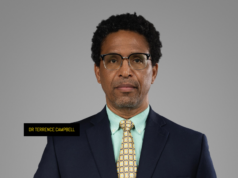Guyana’s approach to managing its natural resources while preserving its vast biodiversity offers a unique model of development that the rest of the world could follow. This was outlined by Vice President of Conservation International Guyana, Curtis Bernard, during a recent episode of United for Biodiversity: The Alliance Podcast.
During the interview, Bernard explained that Guyana’s rich natural wealth can be attributed to its geographic location at the intersection of the Guiana Shield the oldest geological formation on Earth and the Amazon biome, one of the world’s largest remaining intact ecosystems. According to him, this combination, has made the country home to some 8,000 plant species, many of which are endemic, and about 2,500 vertebrate species, including roughly 100 found nowhere else in the world.
The conservation expert stressed that this biological richness places both a global responsibility and an opportunity before Guyana, to show how a country can develop its built and social capital without depleting its natural capital.
“When you look at some of the wealthier countries, you’ll see that their pools of natural capital is a very small portion of what their wealth is. And so, the opportunity for Guyana is to really find ways to build our social [capital] and the built capital while at the same time maintaining our natural capital. I think that’s really the unique model of development that Guyana has the opportunity to demonstrate to the world,” he said.
Moreover, he pointed to initiatives such as its Low Carbon Development Strategy (LCDS) 2030, which commits the nation to improving living standards and infrastructure while safeguarding forests and ecosystems.
He noted that Guyana is probably the only country that put out a national development strategy that explicitly states that, “we are going to be improving the way that people live, the access to resources that we have, while at the same time maintaining nature and really looking to grapple with the challenges of doing that.”
He underscored that this is a rare and deliberate approach that separates Guyana from traditional models of development that prioritize rapid resource conversion into financial wealth.
Further, with the inaugural Global Biodiversity Alliance Summit scheduled to be held next month, Bernard expressed hope that Guyana’s efforts can inspire other countries. He also underscored the importance of regional cooperation, especially within the Amazon Basin, to ensure sustainable development across borders. Bernard stressed that collaboration must include not just governments, but also civil society and Indigenous peoples who are custodians of these landscapes.













